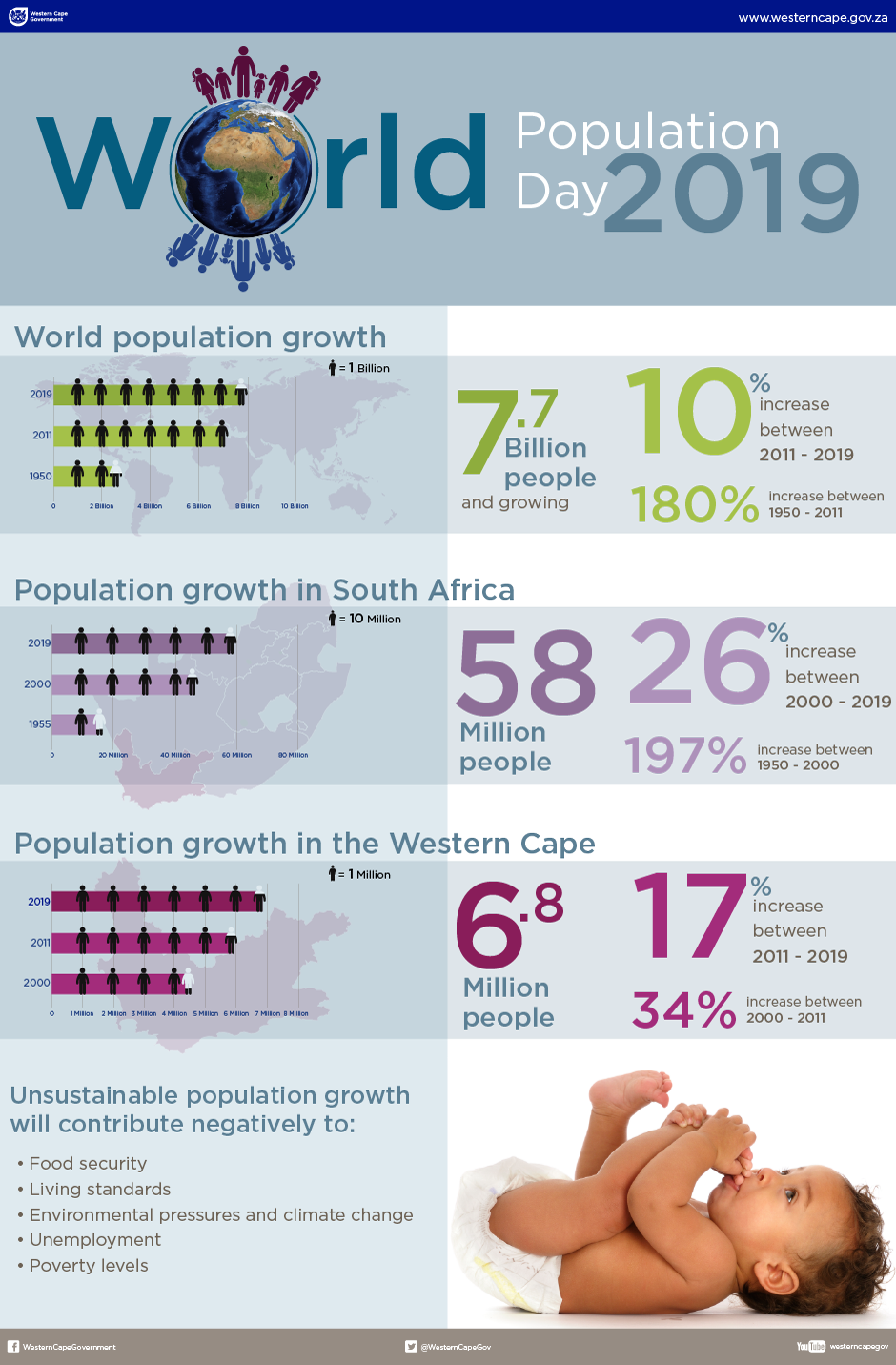World Population Day
 The sustainable development of a country depends on the sustainability of its population growth. An increase in the population places a bigger demand on natural resources like land, water, minerals, fossil fuels, biodiversity and ecosystems.
The sustainable development of a country depends on the sustainability of its population growth. An increase in the population places a bigger demand on natural resources like land, water, minerals, fossil fuels, biodiversity and ecosystems.
According to Stats SA, the South African population was approximately 13.6 million in 1950 and 55.7 million in 2016 and growing. The Department of Social Development’s population projections show that the overall population in the Western Cape province is expected to grow from 5.83-million as recorded in the 2011 Census, to 7.36-million by the year 2040.
Currently, the world population is 7.6 billion, which is an alarming increase from the 2.5 billion world population in 1950.
According to the United Nations Population Fund, dramatic growth is a result of
- more people surviving until they reach reproductive age,
- major changes in fertility rates and
- increasing urbanisation.
The decreasing mortality rate is due to medical advances and increases in agricultural productivity. The United Nations Development Programme (UNDP) highlights the urgency and importance of population issues.
We commemorate World Population Day on 11 July every year. This year the focus is “Family planning is a human right.” Women have made huge progress in exercising their reproductive rights but there are still many countries where women’s right to make their own reproductive decisions aren't recognised. Access to safe, voluntary family planning is a human right and is a key factor in reducing poverty.
Overpopulation or unsustainable population growth may negatively affect:
- Food security
- Living standards
- Environmental pressures and climate change
- Unemployment
- Increased poverty
The only way to ensure that the world’s population remains sustainable is by advocating for smaller families. There are benefits to having smaller families, such as:
- Children receive more attention from their parents.
- Children with one or no siblings do better in education.
- Children prosper more economically and socially.
- Parents with fewer children can manage their finances better.
- Parents can have more time dedicated to their work or other aspects of their lives.
For more information on planning your family and contraceptives, speak to your healthcare practitioner at your nearest primary healthcare facility.
You can also contact:
|
Centre |
Contact Number |
|
Association for Voluntary Sterilisation of South Africa |
Tel: 0861 000 332 |
|
Marie Stopes (Cape Town) |
Tel: 0800 11 77 85 |
|
Lovelife Call Centre |
Tel: 0800 121 900 |



